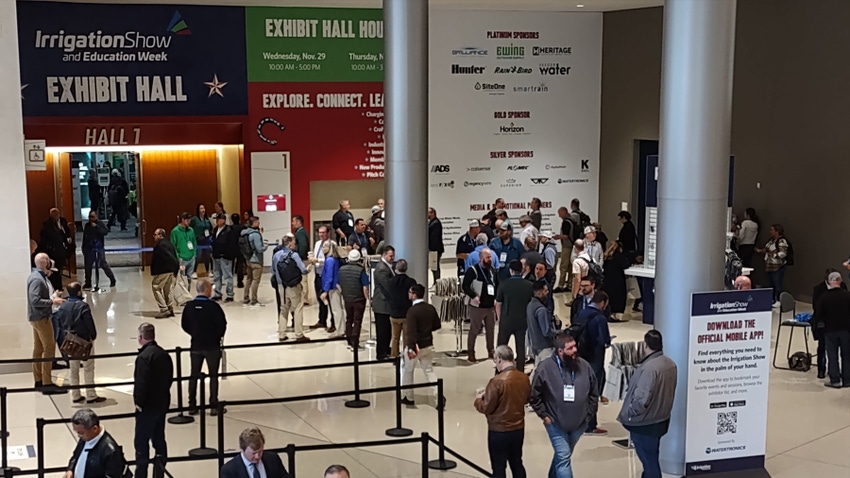
It is really in its infancy. In the irrigation industry, artificial intelligence and machine learning are just now scratching the surface of thousands of potential applications down the road, with only one goal in mind — to optimize water-use efficiency. In other words, to save water.
It’s all about the water, and what that means to food security. At an industry panel discussion at the annual Irrigation Show and Education Week hosted by the Irrigation Association in November in San Antonio, IA President Randy Wood said, “The [irrigation] industry is committed to offering solutions to improve food security, caring for every drop of water, advocating and cultivating a national workforce, and providing services to help ensure that water is available for irrigation for future generations.”
Wood, who is president and CEO of Lindsay Corp. based in Omaha, Neb., added, “This requires our collective efforts and talents toward a common goal, that is through collaboration, elevating the value of wise use of water, ensuring a thriving and growing industry and innovating to protect natural resources.”
From the experts
The panel discussion, moderated by IA CEO Natasha Rankin, included Julie Bushell, vice president of Paige Electric, based in Columbus, Neb.; and Mike Haldane, director of commercial operations for Calsense, based in Carlsbad, Calif.
“We are just scratching the surface of what is possible,” Haldane said. “We are using AI now for technology or marketing content, tech manuals for instance, so we are able to use AI to optimize the process, draft content that is AI-written in a way that is well structured, using the proper grammar and punctuation. It can give us a first draft of content.”
From a business standpoint, he said that AI is also used in learning management systems, to educate employees on HR topics or cybersecurity.
Speeding the processes and bringing institutional memory into play are important uses for AI, Bushell said.
“It is huge for irrigation and for everyone, offering the ability for the next generation of managers and irrigators to capture the knowledge of water people who have been in the industry for the past 30 or 40 years,” she said. “We will need those tools to be successful.”
Down the road
In the future, Haldane said that he believes AI and machine learning could be used to predict maintenance issues with irrigation equipment, perhaps long before it actually breaks down.
“Maybe we can glean information from a solenoid that is slowing down or a valve that is not closing all the way,” he explained. “If we get that information, we can be more proactive and maybe predict a maintenance issue two months before it happens.”
He also said that in the supply chain, AI can offer logistical ways to optimize the entire system, so supplies are available when there is demand.
For Bushell, as an example, AI can help to look at models of how groundwater pumping is affecting surface water, and similar issues.
“I look at AI as just another set of tools to make what we do more efficient and more effective,” Haldane said. “There are countless ways it can make a big difference in the world over time. It is not a replacement for what we do today, but a complement to help us reach our goals, which is to save water, to optimize the use of water.”
Learn more about the Irrigation Show and Education Week at irrigation.org.
Read more about:
IrrigationAbout the Author(s)
You May Also Like






